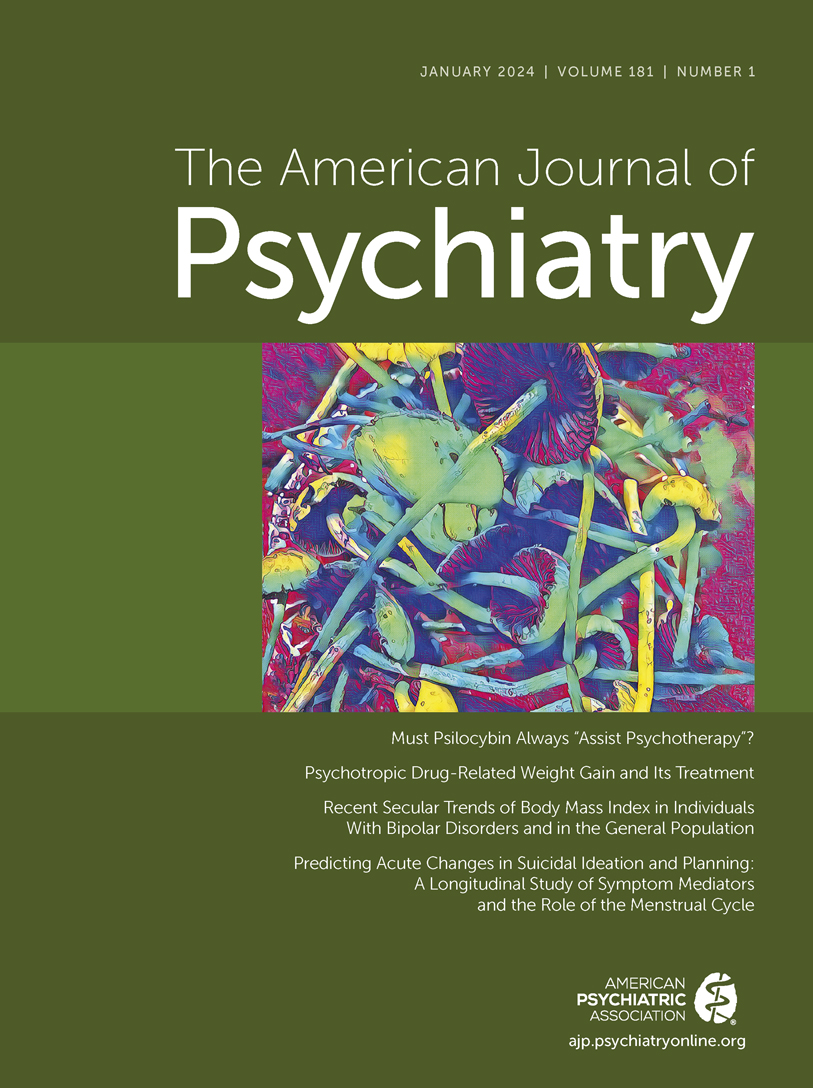Psilocybin Without Psychotherapy: A Cart Without a Horse?
To the Editor: Goodwin and colleagues’ recent commentary (1) will likely generate spirited conversation, but also potential misunderstandings and concern. They assert that psychotherapy sessions inherent in psychedelic-assisted treatment might not be essential. They imply that relevant psychotherapeutic discussions occur during the subjective effects of the molecule, which is not the case with psilocybin trials. We understand their argument—brief psychoeducation and psychedelics administered in safe settings could create improvements without other support save a follow-up visit. Nevertheless, we also understand concerns about the ethics of an approach with no psychotherapy. Perhaps some depressed clients could improve with psilocybin without psychotherapy, especially with appropriate social support and previous experience. Only data can answer this question. A clinical trial could compare groups with and without extensive preparation and integration. If we can agree on a meaningful effect size (perhaps d=0.4–0.80), an appropriately powered trial would require at least 80–280 participants (2).
Proposing an experiment where some clients receive less support might make providers and ethicists uneasy. The working alliance between physician and patient contributes meaningfully to outcomes (3). Participants receiving less contact have fewer opportunities to build this alliance and fewer opportunities to improve. In addition, despite the low rates of documented adverse events associated with psilocybin trials, the thought of sending clinically depressed clients home after a session with little more than a scheduled follow-up might give many professionals pause.
Those familiar with the evidence that therapeutic effects covary with feelings of connectedness might lament a design that returns patients to the environment that has maintained their symptoms with little connection to services (4). The irony related to discharging suffering patients when they might most relish the chance to share insights with an adept listener is hard to articulate. Critics of contemporary models of depression might find that the potential for isolation with this approach highlights their arguments, especially points related to how individual pharmacotherapy can undermine systemic change.
Given these concerns, we can only remind practitioners about the extensive screening inherent in published trials that administer psychedelics (1). We hope that those who add psilocybin to their treatment options will choose clients with extreme care and continue with the current, generous approach that includes psychotherapeutic support in their protocols, at least until data suggest that these resources are unnecessary. Prioritizing safety over cost-efficiency seems most consistent with ideal practice.
1. : Must psilocybin always “assist psychotherapy”? Am J Psychiatry 2024; 181:20–25Abstract, Google Scholar
2. : G*Power 3: a flexible statistical power analysis program for the social, behavioral, and biomedical sciences. Behav Res Methods 2007; 39:175–191Crossref, Medline, Google Scholar
3. : Psychiatrist effects in the psychopharmacological treatment of depression. J Affect Disord 2006; 92:287–290Crossref, Medline, Google Scholar
4. : Psychedelics and connectedness. Psychopharmacology (Berl) 2018; 235:547–550Crossref, Medline, Google Scholar



